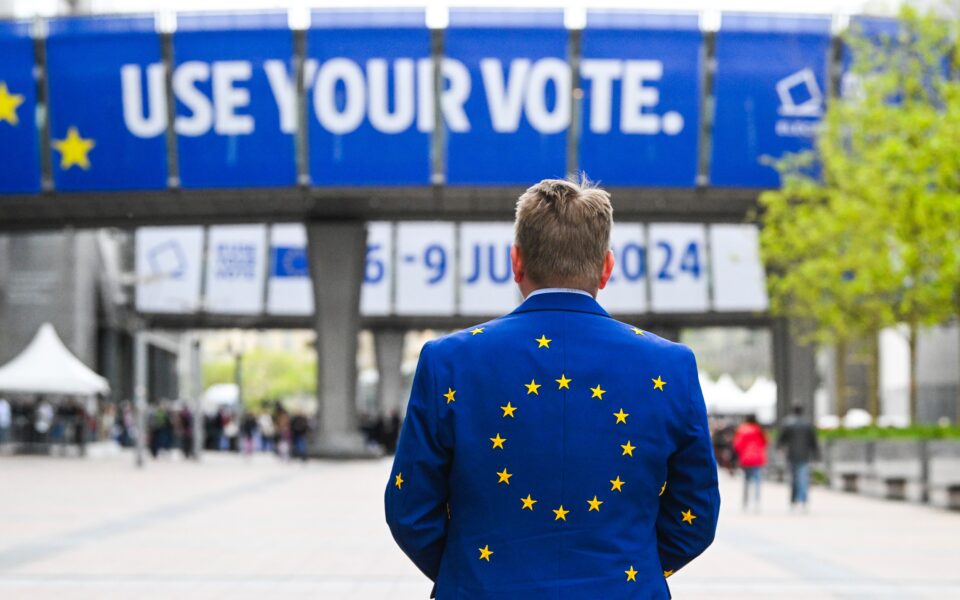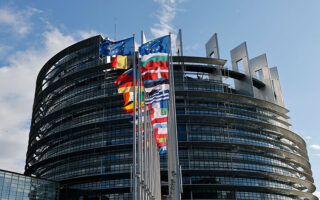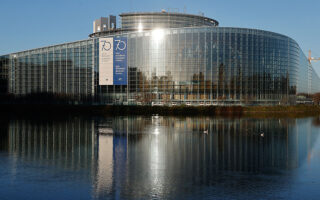Democracy as therapy…

Viewed from outside the EU, the European elections create a political frenzy, but one underpinned with limited substance. They provide a ‘fashion show’ for politicians and they create news stories for the media. Which party is up, which party is down, in public support. What might be the implications for political leaders and their critics? They are the intelligent alternative to the Eurovision Song Contest.
Somewhat like the Eurovision contest, they allow the latest political fashions to be displayed. This year, the momentum is with the populist Radical Right. Will Giorgia Meloni, Marine Le Pen and the Alternativ fur Deutschland show higher levels of public support than before? To this we can add the personality drama: are they or will they be friends in the European Parliament?
The European elections give oxygen to new or fringe parties. Exceptionally, across Europe, in 2019, the Greens did particularly well, and the campaign enabled them to raise the level of attention being given to climate change. But the more usual outcome is for the European elections to fuel populism: currently, the euro-skeptic, anti-immigrant, authoritarian political forces that cherish the voice they are given. Meloni, in particular, is being evasive in her moves, but she and others have the potential to create a new majority bloc in the EP, breaking the traditional alliance between the European People’s Party and the Socialists. The predictions are of a Radical-Right surge.
Indeed, the European elections in recent times have been the single most important vehicle for the rise of Radical Right populism across the continent. The irony is that a vehicle designed to promote more ‘Europe’ has often favored those trying to bring it down. The EP elections offer a free vote, that has no direct impact on who governs, so the voter can indulge in fantasies and protest without expecting any immediate consequence to themselves.
Instead of enabling Europe to progress, the elections provide a funnel by which political ‘steam’ can escape. This is democracy as therapy: emotions can be expressed, protests made, so that we’re then more likely to return to serious politics when the contest returns to who should actually govern us at home. The EP elections offer a picture that wasn’t there before: constructing a distinctive reality with limited consequence. They constitute a mechanism for system protest, though one with little prospect of actually changing the system. They are a useful ‘safety valve’ in that sense.
The media coverage, however, can overestimate the implications of the results. In Greece, everyone expects New Democracy to come first: if it didn’t that would be a real story. There’s much interest in whether it will be SYRIZA or PASOK that will finish second. But, again, unless the difference between them is large, or the SYRIZA vote has fallen significantly, then their actual meaning is limited. This is politics as symbolism: small calibrations made to look important.
The results elsewhere in Europe may prove more consequential for the future of domestic politics. A clear victory for Le Pen’s party in France will offer a warning for the next presidential election. But no one will vote in those elections until 2027! A strong result for Meloni can boost her position in her domestic coalition. Similar outcomes may occur in the coalition politics of other countries. But, again, this is giving meaning to media image. It does not necessarily mean much in terms of longer-term trends in the electorate.
I was very pleased, as an honorary citizen, to vote in the European elections in Greece. The process was highly efficient. Citizens should exercise their vote at all times. But these days, the European Parliament elections should alert us to the limitations of a democratic EU system. The celebratory politics, the media frenzy, are a sad reminder that the original hopes for building a new political system on their foundation are slipping further away. Europe needs a stronger, democratic EU. Let’s not pretend that this week’s elections are helping much in achieving that objective.
Professor Kevin Featherstone is director of the Hellenic Observatory at the London School of Economics.





